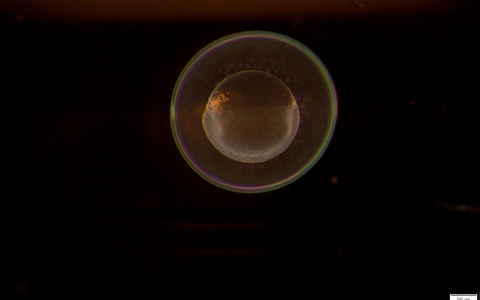
Spin-offs
Entrepeneurship at the Max Delbrück Center
- CARTemis Therapeutics
- Cell-based immunotherapies for cancers
CARTemis Therapeutics is developing cell-based immunotherapies for cancers that were previously considered untreatable. The spin-off company from the Max Delbrück Center uses CAR-T cells for this purpose. These are certain patients' own immune cells that are genetically modified outside the body so that they can recognize and destroy cancer cells.
The spin-off was founded by Dr. Uta Höpken and Dr. Armin Rehm, joined by Dr. Anthea Wirges and Dr. Mario Bunse.
- EPO Berlin
- Preclinical oncology and immuno-oncology services for the development of anti-cancer drugs
The EPO Berlin GmbH is one of the leading CROs for pre-clinical oncology research in Germany since more than 20 years. The companies' highly sophisticated and complex services for development of novel anti-cancer drugs or therapeutic concepts is internationally well acknowledged and requested. The company has modern laboratories for performance of in vivo studies, gene technology as well radioisotope experiments. The EPO GmbH is specialized on individual tumor models of different entities and therefore supports basic as well as translational research. Such models are used for identification of novel therapeutic targets, for drug screens and for complex pharmacological studies. In these studies, EPO correlates efficacy of drug candidates with their pharmacokinetics, evaluates their applicability and analyzes their mechanism of action. Further, by the use of patient-derived models (PDX) predictions for individualized therapies can be made.
EPO is AAALAC certified and adheres to strict industrial standard guidelines to perform services for more than 125 clients from pharma- and biotechnology companies, clinics and research institutions worldwide. Furthermore, EPO is involved in EU-wide consortional projects, which are focused at research for molecular tumor therapies.
- MRI Tools
- Magnetic resonance imaging (MRI) tools, services and product development
In 2011 the MRI.Tools GmbH was founded as a spin-off company from the Max Delbrück Center. The company builds on more than 20 years of experience in MRI technology in academia and industry. MRI.Tool`s portfolio is divided in two main pillars: Services and product development. Whereas consultancy, compatibility testing, product certification for clinical studies and many more are listed in their service portfolio, their product development is also very diverse ranging from Accessories to customized Phantoms. With these offers, MRI.Tools answers the growing need of the industry, clinical research on all levels as well as modern academia.
- MyoPax
- Cell and gene therapies for muscle disorders
MyoPax’ mission is to develop advanced regenerative therapies to fight the devastating consequences of muscle diseases. Their pioneering technology combines cell and gene therapy to repair muscle function. It builds on cutting-edge technologies developed by scientists at the Max Delbrück Center and the Charité – Universitätsmedizin Berlin. MyoPax was founded by the medical doctor Verena Schöwel-Wolf and Professor Simone Spuler, who leads the muscle research group and the Outpatient Clinic for Muscle Disorders at the Experimental and Clinical Research Center (ECRC), a joint institution established by the Max Delbrück Center and Charité on the campus in Berlin Buch.
- OMEICOS
- Targeting cardiovascular inflammation and mitochondrial dysfunction
In 2013 OMEICOS was founded as a spin-off company from the Max Delbrück Center. The pre-foundation phase was covered under the umbrella of the Helmholtz Enterprise and the MDC Pre-GoBio funding scheme. The core business idea was to explore the beneficial and therapeutic potential of epoxyeicosanoids, better known as naturally occurring metabolites of omega-3 fatty acids.
In a period of only about five years, the company managed to translate their findings made at the Max Delbrück Center in close collaboration with the University of Texas Southwestern Medical Center into clinically relevant development. The company’s main focus and translational research interest is to fully unlock the therapeutic potential of synthetic analogs of the epoxyeicosanoids, which targets one of nature’s most important cellprotective pathways mediating cell-protective and anti-inflammatory effects in cardiovascular and ophthalmic diseases.
- T-knife
- T-cell immunotherapies for the treatment of cancer
T-knife is developing next-generation adoptive T-cell therapies for solid tumors by using its proprietary humanized T-cell receptor (HuTCR) mouse platform – mouse strains whose T cells express only human T-cell receptors (TCRs) – to bring highly effective and safe T-cell receptor-based therapeutics to market.
- Trypto Therapeutics
- Drug that specifically lowers serotonin levels
Trypto Therapeutics is developing a set of novel, proprietary small molecules at TRL level 4 to treat serotonin-related diseases. They have developed and patented a novel class of TPH inhibitors (TPHi) with nanomolar potency in vitro. The TPHi differ in their scaffold, binding mode, and potency from TPHi that are currently on the market or under clinical investigation. The lead TPHi compound achieved readiness to transition from academic research towards a targeted pharmaceutical development.
- About the header image
- A zebrafish embryo
-
Zebrafish embryo six hours after fertilization: The MDC research lab found numerous localized genes at this early stage of development. Much of their RNAs flows into the precursor cells of the later germ cells.
© AG Junker, MDCFurther reading: Tracking genes through space and time within a one-cell zebrafish embryo
We are a founding member of the Startup Factory UNITE.
Information for our researchers (internal access)





